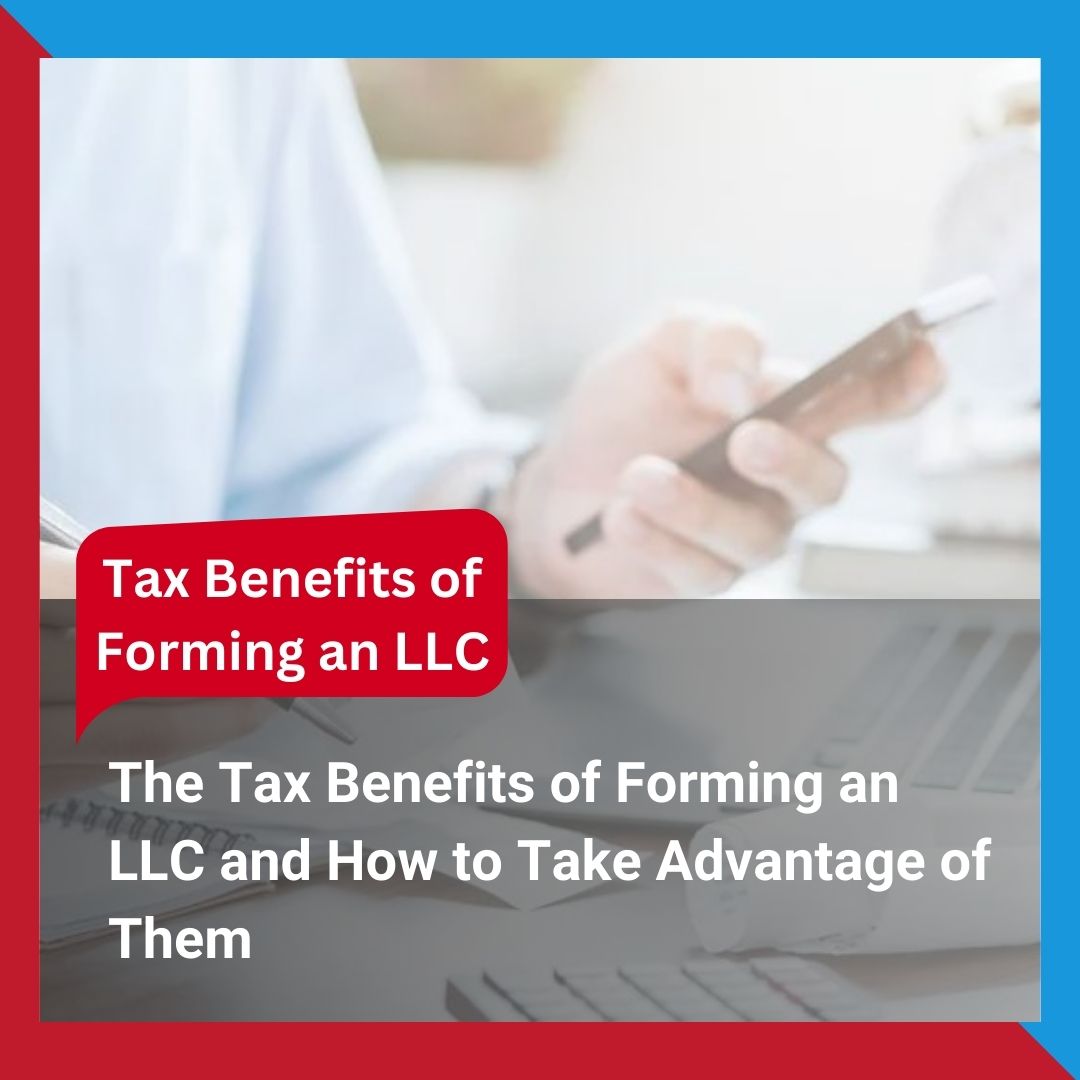Table of Contents
Starting a business is an exciting endeavor, but it’s crucial to understand the tax implications involved. Choosing the right business structure can significantly impact your tax burden and overall financial success. Among the various options, forming a Limited Liability Company (LLC) offers several tax benefits that can be highly advantageous for entrepreneurs and small business owners.
This comprehensive guide will delve into the key tax benefits of forming an LLC and provide practical strategies for maximizing these advantages. We’ll explore concepts like pass-through taxation, self-employment taxes, and various deductions available to LLCs. By understanding these benefits and implementing effective tax-saving strategies, you can significantly reduce your tax liability and keep more of your hard-earned profits.
Understanding the Tax Benefits of an LLC
1. Pass-Through Taxation
One of the most significant tax advantages of forming an LLC is pass-through taxation. Unlike corporations, which are taxed separately from their owners, LLCs are not subject to corporate income tax.
Instead, the business’s income and expenses are “passed through” directly to the owners’ personal income tax returns. This means that the business’s profits and losses are reported on the owners’ individual tax returns, and they are taxed at their individual tax rates.
Pass-through taxation offers several benefits:
- Reduced Tax Rates: Depending on the individual’s tax bracket, pass-through taxation can result in lower tax rates compared to corporate tax rates.
- Simplicity: Pass-through taxation eliminates the need to file separate corporate tax returns, simplifying tax compliance for business owners.
- Flexibility: Business owners can choose to be taxed as a sole proprietorship, partnership, or S corporation, depending on their specific needs and tax situation.

2. Self-Employment Taxes
While pass-through taxation eliminates corporate income tax, LLC owners are still responsible for paying self-employment taxes. These taxes cover Social Security and Medicare and are typically higher than the payroll taxes paid by employees.
However, LLC owners can deduct half of their self-employment taxes on their personal income tax returns, effectively reducing their tax burden.
3. Deductions
LLCs offer a variety of deductions that can further reduce taxable income and lower tax liability. Some common deductions available to LLCs include:
- Business Expenses: Ordinary and necessary expenses incurred in running the business, such as rent, utilities, supplies, and travel expenses.
- Depreciation: The cost of business assets, such as equipment and vehicles, can be depreciated over their useful life, reducing taxable income.
- Health Insurance Premiums: Premiums paid for health insurance for the business owner and their family can be deducted as a business expense.
- Retirement Contributions: Contributions to retirement plans, such as SEP IRAs and solo 401(k)s, can offer significant tax savings.
Maximizing the Tax Benefits of an LLC
1. Choose the Right Tax Classification
As mentioned earlier, LLCs can choose to be taxed as a sole proprietorship, partnership, or S corporation. Each classification has different tax implications, so it’s crucial to choose the one that best suits your business needs and tax situation. Consulting with a tax professional can help you determine the most advantageous classification for your LLC.
2. Keep Accurate Records
Maintaining accurate and organized financial records is essential for maximizing tax benefits. This includes tracking all business income and expenses, as well as documenting any deductions you claim on your tax return. Good recordkeeping practices will not only help you substantiate your deductions but also make tax preparation much easier.
3. Seek Professional Advice
Navigating the complexities of business taxes can be challenging. Consulting with a qualified tax professional can provide valuable guidance on maximizing the tax benefits of your LLC. A tax professional can help you choose the right tax classification, identify potential deductions, and ensure compliance with tax laws. Moreover, You shoual also learn about other benefits of forming a Limited Liability Company (LLC) in usa.

FAQs
1. Do I need to file a separate tax return for my LLC?
No, if your LLC is taxed as a sole proprietorship or partnership, you will report the business’s income and expenses on your personal income tax return. However, if your LLC is classified as an S corporation, you will need to file a separate corporate tax return.
2. Can I deduct my personal expenses as business expenses?
No, you can only deduct expenses that are ordinary and necessary for running your business. Personal expenses, such as groceries or entertainment, are not deductible.
3. What happens if I don’t pay my self-employment taxes?
Failure to pay self-employment taxes can result in penalties and interest charges. It’s crucial to stay current on your tax payments to avoid any financial repercussions.
4. How can I ensure compliance with tax laws?
Consulting with a tax professional and maintaining accurate records are crucial for ensuring compliance with tax laws. Additionally, staying informed about any changes in tax regulations is essential.
Conclusion
An LLC offers numerous tax benefits that can significantly reduce your tax burden and boost your business’s financial performance. By understanding these benefits and implementing effective tax-saving strategies, you can maximize your profits and achieve long-term financial success.
Remember, seeking professional guidance from a tax advisor can provide valuable insights and ensure you’re taking full advantage of your LLC’s tax benefits. Also, do check out the other benefits you can avail being an E-commerce business LLC in the market.
Are you ready to explore the tax benefits of forming an LLC and take your business to the next level? Contact us today to schedule a consultation with our experienced tax professionals. We’ll help you navigate the complexities of business taxes and ensure you’re maximizing your financial potential.

